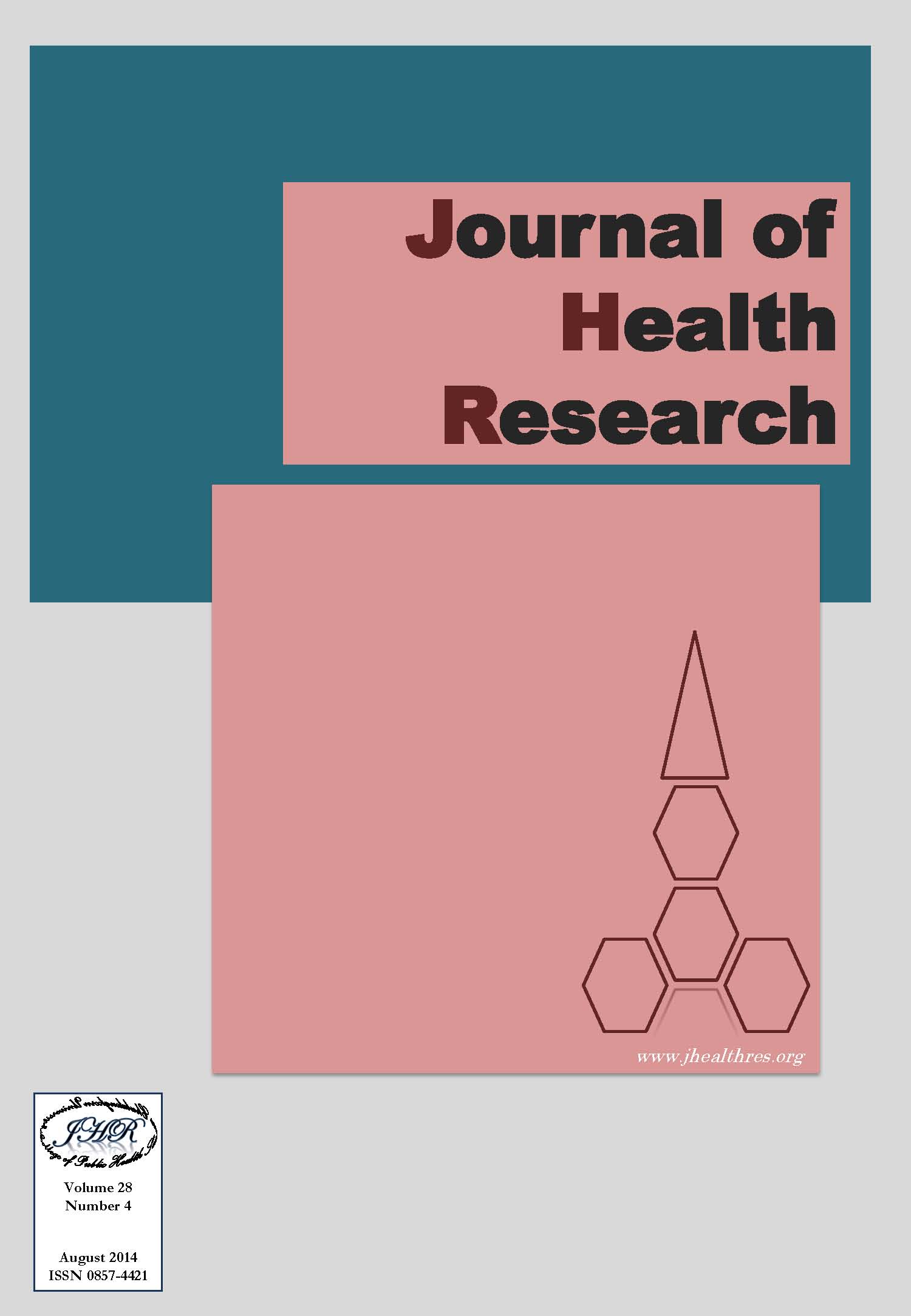Effectiveness of a Self-Management Support Program for Type 2 Diabetes Mellitus in Public Health Centers in Bangkok, Thailand: Randomized Controlled Trial
Keywords:
Self-management support, Glycemic control, Self-efficacy, Quality of lifeAbstract
The objective of this study was to compare the effectiveness of a self-management support program (DSMS) for type-2 diabetes mellitus (T2DM) versus usual care in public health centers. A randomized controlled clinical trial was conducted in 4 public health centers. One hundred and eighty participants were equally randomized into intervention and control groups. The intervention was a module of 6-session empowerment-based self-management support program offered by health professional teams that offered, group meeting every two weeks for ten weeks and telephone follow up at week 10 and week 20. The control group received usual care every month. The data were assessed at baseline and two follow-ups at week 12 and week 24, regarding the outcomes HbA1c, BMI and blood pressure, self-care efficacy, depression and quality of life. The data of 174 participants were analyzed. The results revealed that the intervention was not associated, at either follow-up time, with statistically significant improvement in HbA1c level, systolic or diastolic blood pressure, or body mass index was found at any time of the assessment. At week 24, intervention was associated with significant improvement in self efficacy score, self-care behaviors, and diabetes-specific quality of life (p<0.001 for all). After adjustment of medication change, the intervention was associated with a marginally significant increase in HbA1c level (p=0.056). In conclusions, the DSMS program can improve self-efficacy, self-care behaviors and improve quality of life. Therefore, implementing the program is recommended for promoting the ability of self-care in type2 diabetes patients in public health centers.






